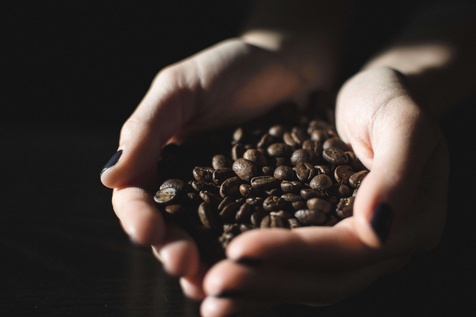Polyphenols found in coffee, such as lignans and flavonoids, are also known to have anti-cancer properties, as is caffeic acid, which inactivates several processes involved in tumor development - cell cycle regulation, inflammatory response, and apoptosis.
In a recent study of people with advanced (stage III) colon cancer, it was found that drinking four or more cups of coffee daily reduced the risk of recurrence or death by 52 percent compared with those who did not drink coffee.
Drinking two to three cups a day is also beneficial and reduces those same risks by 31 percent.
The researchers also found that other beverages containing caffeine, such as some sodas, do not have the same effect. No benefits were found with decaffeinated coffee.
A meta-analysis involving 59 studies found that drinking an extra cup of coffee per day is associated with a 3 percent lower risk of cancers. According to the researchers:
"Coffee consumption decreases the risk of bladder, breast, oral, pharyngeal, colon, endometrial, esophageal, hepatocellular, blood, pancreatic and prostate cancers. "
Some research even shows that drinking coffee may reduce the risk of skin cancer. Drinking four cups of coffee a day would reduce the risk of melanoma, the most dangerous form of this type of cancer.
A 2007 meta-analysis showed that drinking two additional cups of coffee per day reduced the risk of liver cancer by 43 percent. This finding has been confirmed by more recent research.

More reasons to drink coffee...
If you don't drink coffee, there's no reason to get used to drinking it; there are plenty of other ways to fuel your body with antioxidants, like eating fresh vegetables and even cocoa.
However, if you are a coffee drinker, be aware that it reduces the risk of type 2 diabetes, obesity and metabolic syndrome. According to the Harvard Medical School:
"Heavy coffee drinkers are half as likely to develop type 2 diabetes as light coffee drinkers or people who don't drink coffee at all." Coffee contains elements that lower blood sugar. It can also increase basal metabolic rate. ".
Decaffeinated coffee appears to have less protective effect against diabetes than coffee with caffeine. As reported by the New York Times:
"One of the most plausible hypotheses is that caffeine increases the body's sensitivity to insulin, so that it needs less of this hormone, which in turn reduces inflammation, a risk factor for diabetes and cancer."
Research published in the New England Journal of Medicine has shown that coffee consumption is inversely associated with premature death. The more coffee you drink, the lower your risk of death from heart and lung disease, stroke, diabetes and infection.

The healthiest coffee is black and organic
Just as the addition of sugar and milk is not recommended in tea, the coffee should be consumed in its healthiest form: black and organic. Remember that café crops are among the most sprayed with pesticides and less than 3 percent of them are organic. It is therefore essential to choose your organic coffee and, ideally, from fair trade.
Some research suggests that adding milk to your coffee may interfere with the absorption of beneficial chlorogenic acids. Also, if you add sugar, you will have an insulin spike which promotes insulin resistance.
Whenever possible, prefer fair trade and organic coffee grown in the shade to prevent the destruction of rainforests and the animals that inhabit them. In addition, many consumers say that this type of coffee is much better in taste.
You can grind your own coffee beans to avoid rancidity. If you use a drip coffee maker, use unbleached filters. Conventional filters are bleached with chlorine and some of this chlorine will escape into your drink during the brewing process.
Bleached filters are also filled with hazardous disinfectants such as dioxin.
As already mentioned, you shouldn't start drinking coffee if you don't already have a habit of it. But if you enjoy this drink, know that this habit can be quite healthy and beneficial, as long as you consume it without excess.
There is, however, one caveat regarding expectant mothers; caffeine can induce a significant delay on fetal growth. Therefore, it is highly recommended that pregnant women limit their consumption of caffeine !



